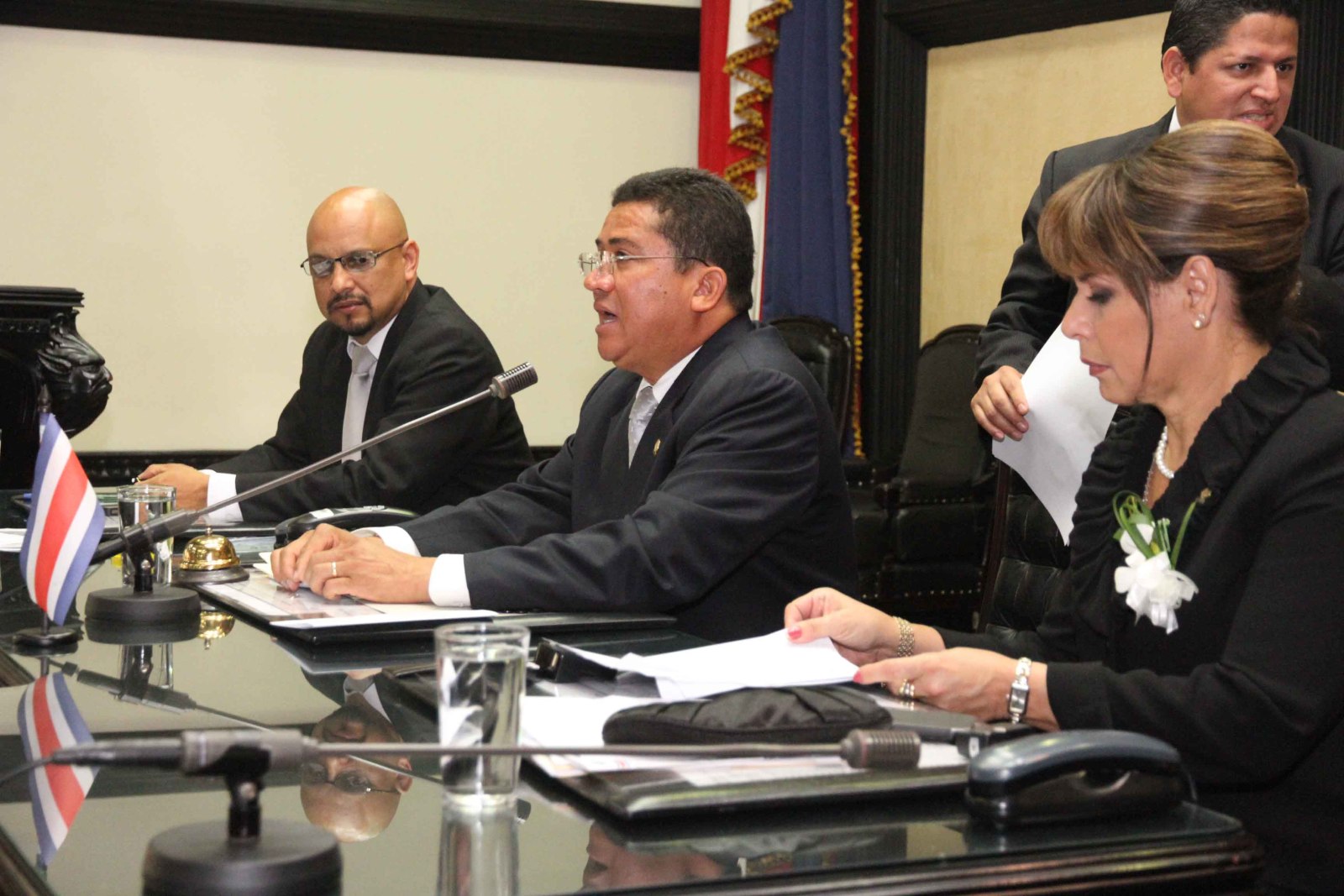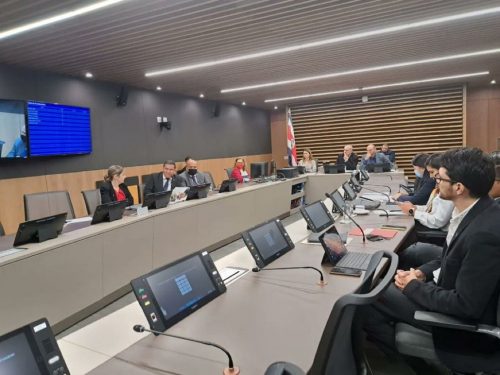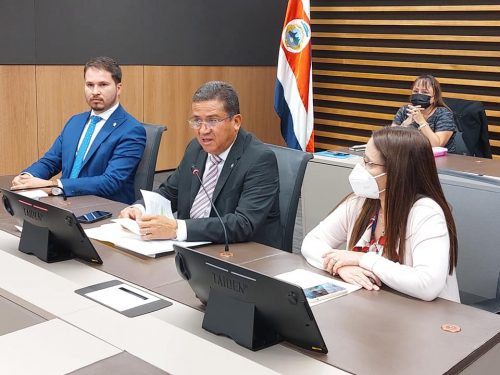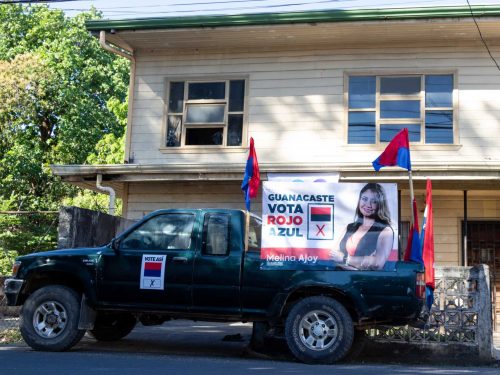
In nearly 100 years, no Guanacastecan has occupied the seat of the president of the Legislative Assembly… until now.
On May 1, Luis Fernando Mendoza Jimenez, legislator of the National Liberation party (PLN) for the cantons of upper Guanacaste (Abangares, Bagaces, Cañas and Tilaran), gained the 29 votes necessary from his fellow legislators to be named president of the proceedings. Mendoza, age 51, is a politician by profession and passionate about local folklore from the pampas. His political political experience in the congress isn’t new, with 19 of the initial May 1 sessions (when the president of the Legislative Assembly is elected and the Costa Rican president addresses the assembly) under his belt, since he entered in 1994 as legislative aide for former legislator Humberto Fuentes, also of PLN.
The legislator conversed with The Voice about his surprise nomination as the PLN candidate to occupy the position of presient, as well as his new responsabilities, challenges and the priority projects that he will try to push for Guanacaste. He told us about the plans to create a new canton in the peninsula, the project to channel water from Arenal toward the lowlands and the desire to obtain funds to finish paving route 160 that connects Nosara with Samara.
The Voice: How was the process first of your nomination and later your election to the presidency?
On April 29 (two days before voting) the president of the republic invited us members of the National Liberation party fracion to a meeting in the presidential house and there determined that none of the party candidates (Luis Gerardo Villanueva and Sianny Villalobos) had enough votes to be able to obtain the presidency of the Assembly. It was decided this day that they would be evaluating a third option (as candidate) for the next day. In the afternoon of April 30, I received the news that they had formally nominated me as candidate for the presidency.
The Voice: Why do you think they elected you? And how much did your closeness to President Chinchila influence [the decision]?
Yes, of course that had a considerable influence. The president wants to advance state politics by creating governable spaces. This requires that decision-making be effective and yields results, and to achive that a very close coordination is needed, and constant conversation. In this Guanacastecan, they found a person with whom they can coordinate in a fluid way. Due to this they could expect very agile decision-making from my person.
The Voice: What is the most difficult part of presiding over the proceedings?
Trying to get all of the parties to reach an agreement is the most complicated. The parliment is a space where distinct interests, ideas, proposals, viewpoints and especially different ways of seeing the country converge. Therefore managing and conducting all of these forms of thinking along the same route is what is hard to accomodate. However, I’ve been doing it in a very simple way: using common sense. I put each proposal made, for example by the fraction leaders, on the table, we all debate it and I ask them that we come to a conclusion that resolves this situation, and with simplicity, humility and common sense, we’ve been achieving it, so much so that we’ve moved a project forward that was stuck in parliment for about two months in the case of the Agreement of Association with the Euripean Union, which has now been approved.
The Voice: With your reaching the presidency, many Guanacastecans hope to see projects completed that have been in the assembly for years, so they advance and finally get approved. Which projects will you give priority?
Of course, we’re going to try and propose that some projects for the province are incorporated within these priorities. Within the 13 projects of the order of the day, a reform to the tax law for departures by air and land is already included, which a percentage of these taxes goes to the 11 municipalities of the province of Guanacaste, including the Federation of Municipalities. If this project is passed, the municipalities would have an additional resource to be able to execute projects. We also have other projects like the peninsular plebiscite. I aim to put to vote not just the peninsular plebiscite but also the project presented by legislator Agnes Gomes of Puntarenas that aims to create a canton of The Peninsula (composed of Paquera, Cobano, Lepanto and Jicaral).We’re going to reach an agreement to discuss and to see which goes first but we’re going to try to approve it this year. I believe that it is viable because there is express willinness from the majority of the legislators from all of the fractions to vote on this project. Also there is the project of Water for Guanacaste, to take advantage of the water that comes from the Arenal Lagoon to make a large reservoir in Bagaces in the Piedra River to give water for irrigation and for human consumption to the entire coast of the Guanacaste lowland. This is an executive and legislative project, so it likely needs a public loan to finance it. Therefore it necessarily has to pass through congress.
The Voice: Are you familiar with or are you aware of the project that aims to pave route 160 and the $70 million that were promised since 2007 to pave this route?
No, the truth is that I don’t know about it. What I am familiar with is the project being done now to partially pave the route (160) and what’s important is that the work already started and is going to continue and if there are possibilities for a public loan to do the entire route then have the certainty that all of us legislators from Guanacaste are going to be on top of it to manage to obtain these resources.
The Voice: Are you familiar with the initiative to create a coastal conton or district council that would include Cuajiniquil, Samara and Nosara?
I’m not familiar with it but they would have to get the consent of the municipality of Nicoya to be able to create a muncipal council and like this it would be possible to acieve it.







Comments